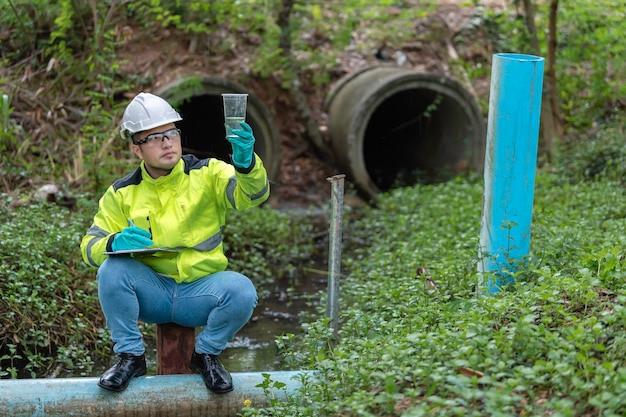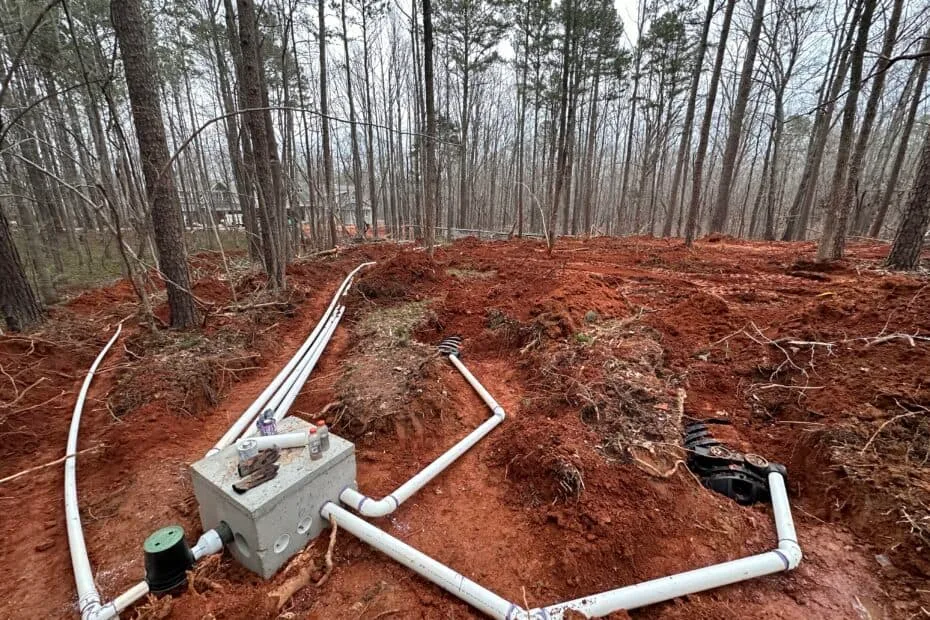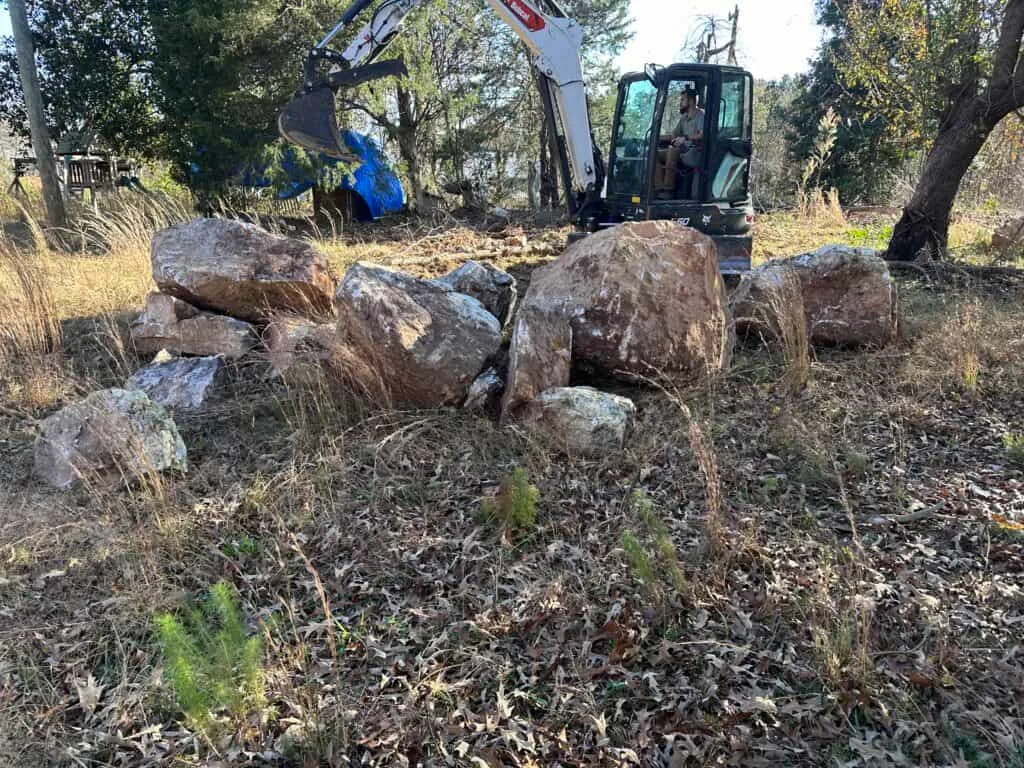Why Monroe, NC Homeowners Trust Us for Septic Inspections
Owning a home in Monroe, NC, comes with its responsibilities, and keeping your septic system in top shape is one of them. Many homeowners in the area have found peace of mind by trusting us for their septic inspections. From understanding the basics of how your system works to learning the best septic inspection tips, we’ve got you covered. Our team blends expertise with a friendly approach to help you grasp the essentials of septic system maintenance. Join us as we share insights that ensure the health and longevity of your septic system, all while making the process as straightforward and stress-free as possible.## Importance of Septic Inspections
Regular septic inspections are crucial for maintaining a healthy and efficient home waste management system. Let’s explore why these checks are so important and how they contribute to the overall well-being of your property.
Understanding Septic Systems
A septic system is an underground wastewater treatment structure used in areas without centralized sewer systems. Homeowners must grasp the basics of how these systems function.
Septic systems typically consist of a septic tank and a drainfield. The tank separates solids from liquids, while bacteria break down organic matter. Clear water then flows into the drainfield for further treatment.
Understanding your septic system’s components helps you recognize potential issues early. This knowledge empowers you to proactively maintain your system’s health.
Regular inspections ensure that all parts of your septic system are functioning correctly. They can prevent minor problems from becoming major, costly repairs down the line.
Why Regular Checks Matter
Regular septic inspections are not just a good idea; they’re necessary for maintaining a healthy home environment and protecting your investment.
These checks can identify potential issues before they become serious problems. Early detection of leaks, clogs, or system overloads can save you thousands in repair costs.
Regular inspections also help extend the life of your septic system. A well-maintained system can last for decades, while a neglected one might fail prematurely.
Environmental protection is another crucial reason for regular checks. A malfunctioning septic system can contaminate groundwater and nearby water bodies, posing health risks to your family and community.
Lastly, many local regulations require periodic septic inspections. Staying compliant can help you avoid fines and ensure your property meets all legal requirements.
Monroe’s Trusted Experts
Regarding septic inspections in Monroe, NC, you need experts who understand the local landscape and regulations. Our team brings a wealth of experience and a deep commitment to serving the community.
Local Knowledge and Experience
Our team’s familiarity with Monroe’s unique soil conditions and environmental factors sets us apart in providing top-notch septic services.
We’ve been serving the Monroe community for years, gaining invaluable insights into homeowners’ specific challenges with their septic systems. This local expertise allows us to offer tailored solutions that work best for our area.
Our inspectors are well-versed in local regulations and work closely with Union County Environmental Health to ensure all inspections meet or exceed local standards.
We continually update our knowledge and skills to stay ahead of industry advancements. This commitment to ongoing education allows us to offer our clients the most current and effective septic solutions.
Our deep roots in the community also mean we understand the importance of building long-term relationships with our clients. We’re not just service providers but your neighbors, committed to keeping Monroe’s homes safe and healthy.
Client Testimonials and Success Stories
Our clients’ experiences speak volumes about our commitment to excellence and customer satisfaction. Here are a few success stories that highlight our expertise and dedication.
One Monroe homeowner, Sarah, faced recurring septic issues for years before calling us. Our thorough inspection revealed a hidden problem that previous services had missed. After our intervention, Sarah reported, “No more backups or odors. It’s like having a brand new system!”
Another client, the Johnson family, was preparing to sell their home when our inspection uncovered a potential deal-breaker. Our quick action and clear communication with all parties involved saved the sale. The realtor later told us, “Your professionalism made all the difference.”
We also helped a local business owner, Mike, avoid a costly septic system replacement. Our innovative solution extended the life of his existing system, saving him thousands. Mike said, “Their expertise and honest advice were invaluable.”
These stories reflect our commitment to providing not just services, but solutions that make a real difference in our clients’ lives.
Homeowner Septic Guide
As a homeowner in Monroe, NC, understanding your septic system is key to maintaining a healthy home environment. This guide will help you navigate common issues and implement effective maintenance strategies.
Common Issues and Solutions
Septic system problems can range from minor inconveniences to major health hazards. Recognizing these issues early can save you time, money, and stress.
One common problem is slow draining or gurgling sounds from pipes. This often indicates a clog in the system. The solution might be as simple as reducing water usage or having the tank pumped.
Foul odors around your drainfield are another red flag. This could mean your system is overloaded or malfunctioning. Professional inspection is crucial in this case to prevent groundwater contamination.
Wet spots in your yard, especially near the septic tank or drainfield, suggest a possible leak. This requires immediate attention to prevent further damage and potential health risks.
Backups in your home’s plumbing are serious issues that demand prompt professional intervention. They often indicate a full tank or a blockage in the system.
Preventative Maintenance Steps
Proactive maintenance is the best way to avoid costly septic issues. Here are some steps you can take to keep your system in top shape:
Schedule regular pumping: Have your tank pumped every 3-5 years, depending on household size and usage.
Be mindful of water usage: Spread out laundry loads and fix leaky faucets to prevent system overload.
Watch what goes down the drain: Avoid flushing non-biodegradable items or harsh chemicals.
Protect your drainfield: Keep vehicles and heavy equipment off this area to prevent soil compaction.
Maintain proper landscaping: Avoid planting trees near the septic system, as roots can cause damage.
Regular inspections by professionals are also crucial. They can spot potential issues before they become major problems, saving you money in the long run.
Septic Inspection Tips

Preparing for and understanding the septic inspection process can help ensure a smooth and effective evaluation of your system. Here’s what you need to know to make the most of your inspection.
Preparing for an Inspection
Proper preparation can make your septic inspection more efficient and effective. Here are some steps to take before the inspector arrives:
Locate your septic tank and system components. If you’re unsure, check your property records or contact your local health department for assistance.
Clear the area around your septic tank and drainfield. Remove any obstacles that might hinder access, such as outdoor furniture or playground equipment.
Gather relevant documents, including previous inspection reports, pumping records, and any system repairs or modifications.
Make a list of any concerns or unusual observations you’ve had about your septic system. This information can guide the inspector’s focus.
Avoid using water excessively in the 24 hours leading up to the inspection. This allows the inspector to see the system under normal conditions.
What to Expect During the Process
A thorough septic inspection involves several steps to ensure your system is functioning properly. Here’s what typically happens:
The inspector will start by reviewing your system’s history and any concerns you’ve noted. They’ll then locate and examine all components of your septic system.
Next, they’ll check the water level in your septic tank. This can indicate whether the tank is draining properly into the drainfield.
The inspector will then assess the condition of your tank, looking for cracks, leaks, or other signs of damage. They may also measure the sludge and scum layers to determine if pumping is necessary.
Your drainfield will be examined for signs of failure, such as wet spots, odors, or unusually lush vegetation. The inspector may also perform a flow test to ensure proper drainage.
After the inspection, you’ll receive a detailed report of the findings, including any recommendations for maintenance or repairs.
Ensuring Septic Health

Maintaining a healthy septic system is an ongoing process that requires attention and care. By implementing long-term strategies and knowing when to seek professional help, you can ensure your system’s longevity and efficiency.
Long-Term Maintenance Strategies
Adopting a proactive approach to septic maintenance can prevent many common issues and extend your system’s lifespan. Here are some long-term strategies to consider:
Create a septic system maintenance schedule. This should include regular inspections, pumping, and any necessary repairs.
Educate your family about proper septic system use. This includes what can and can’t go down the drains and toilets.
Keep detailed records of all maintenance, repairs, and inspections. This information can be valuable for future service visits and if you ever sell your home.
Consider installing water-saving fixtures to reduce the load on your septic system. Low-flow toilets and high-efficiency washing machines can make a significant difference.
Maintain proper landscaping around your septic system. This includes directing rainwater away from your drainfield and avoiding planting trees too close to the system.
When to Call for Professional Help
While regular maintenance can prevent many issues, there are times when professional intervention is necessary. Here are signs that indicate you should call a septic professional:
Slow draining sinks or toilets that persist despite attempts to clear them
Sewage odors inside or outside your home
Wet or mushy areas in your yard, especially near the septic tank or drainfield
Sewage backing up into your home through drains or toilets
Gurgling sounds in your plumbing system
If you notice any of these signs, don’t hesitate to contact a professional. Quick action can prevent minor issues from becoming major, costly problems.
Remember, your septic system is a crucial part of your home. Regular care and prompt attention to potential issues will keep it functioning efficiently for years to come.


